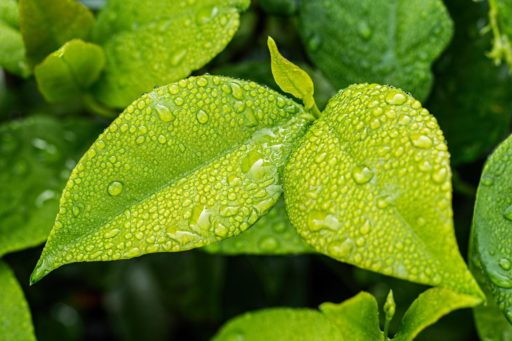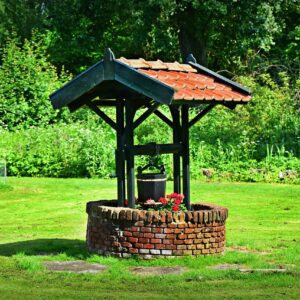It’s the last place I’d have expected to find my Uncle Karl. That’s Karl Shapiro: my mother’s brother, 1945 Pulitzer Prize winning poet who was celebrated in his time, appointed Poet Laureate in 1946-7, editor of Poetry 1959-56, awarded the Bollingen Prize in 1968. But Karl is practically unknown today. Sad evidence of this: he’s included in the 1950 edition of The Oxford Book of American Verse (which Karl inscribed to my parents), but in my 1976 edition he is totally gone.
So where did I unexpectedly find Uncle Karl? In the current issue of Islamic Horizons, the quarterly magazine of the Islamic Society of North America.
Backstory: After 9/11, my husband, George Dardess, committed himself to learning about Islam. His interest was warmly embraced by our local Islamic Center, where he studied the Quran and deepened his understanding of Islam. Out of this experience he wrote a few books on Muslim-Christian relations. In the course of all this, he subscribed to Islamic Horizons. His subscription continues today, and I always enjoy reading the magazine—because through it I get a sense of the interests and concerns of the Muslim-American community.
Reading through the current issue, I was enlightened by articles on the mental health challenges of Muslim youth, Islamophobia in the U.S., Muslim women scientists, caution on where your zakat (tithing money) goes, and more. Towards the magazine’s end, I turned the page and—yipes!—was met by a portrait photo of Uncle Karl. Naturally I dug right into the article.
Titled “The Value of Literature and the Arts is in the Interpretation,” the article is by Reem Elghonimi. Her by-line says she “holds MAs in Islamic law, Middle East history, as well as the arts and humanities” and is “currently translating new research from Islamic humanities into K-12 instructional material to represent Muslim history and voices.”
At the article’s start, Elghonimi identifies herself as “a female child immigrant to the U.S. from Egypt in 1979.” Her focus in the article is on how Muslim American experience might be included in school curricula—so that other Americans could “learn about them as individuals.”
So where does Uncle Karl come in? It’s when Elghonimi urges Muslims to “listen to those who can best interpret our story and relate our history” and then, as her example of whom to listen to, chooses “Poet Laureate Karl Shapiro” in his poem “California Winter” (from The New Yorker in 1957). Of the poem’s five stanzas, Elghonimi quotes two lines— “If the walls were older one would think of Rome: / If the land were stonier one would think of Spain”—and then the final verse:
It is raining in California, a straight rain Cleaning the heavy oranges on the bough, Filling the gardens till the gardens flow, Shining the olives, tiling the gleaming tile, Waxing the dark camellia leaves more green, Flooding the daylong valleys like the Nile.
What interests Elghonimi here is “the Nile”—because when describing his state’s topography and climate, Shapiro “didn’t invoke European lands to mediate his cultural past.” No, he turned to Egypt. “The poem’s imagery locates Egypt in the American West” and “Shapiro highlighted the ordinary working person’s relation to land and water as a cultural affinity with Egypt.” These claims are a lot of weight to put on a single word of a forty-two-line poem, and I’m afraid that they’re overstated. In fact, though I’m sorry to say this, I think Elghonimi is missing what’s mainly going on in this poem.
Most of the poem is attending to features of the landscape and skyscape in the California winter—all within a formal structure of six-line stanzas of iambic pentameter, with lines 2 and 3 rhyming, as well as lines 1 and 5. Verse one focuses on flowers, beginning with fun play on inside and out: “It is winter in California, and outside / is like the interior of a flower shop.” Verse two turns its attention to “a line of snails” crossing the lawn, then poisoned by the gardener, who will “rake up the shells” into (in an image both dreadful and delightful) a “little mound of empty snails, like skulls.”
Verse three looks upward, as “the world’s immensest sky opens a page / For the exercises of a future age”: the smoke of jet planes drawing figures—which are soon dissolved by the wind. Verse four turns to California’s vineyards: with vines dead in winter (“The vineyards crucified on stakes suggest / War cemeteries”) but with the grapes all pressed. For, alliteratively, “on the sidings stand tank cars of wine / For which bright juice a billion grapes have bled.” In verse five we have “skiers from the snow line driving home,” descending through the vegetation of each altitude change: “almond orchards, olive farms. / Fig tree and palm tree—everything that warms / The imagination of the wintertime.” Verse six focuses on trees, including “Trees that were young when Pharaohs ruled the world” (an Egyptian reference that I’m surprised Elghonimi didn’t pick up on). Then comes another dark image (like those “snails like skulls”): “Beautiful they are not; they oppress the heart / With gigantism and with immortal wings.”
Finally, the final verse, the one that Elghonimi quotes, with its luscious images of the rain’s effects:
It is raining in California, a straight rain Cleaning the heavy oranges on the bough, Filling the gardens till the gardens flow, Shining the olives, tiling the gleaming tile, Waxing the dark camellia leaves more green, Flooding the daylong valleys like the Nile.
What strikes me about “California Winter,” besides its fine formal features, is its alteration between immediacy and transience, between the old and the new, between light visions and dark.
Despite Elghonimi’s ignoring all this richness of the poem, I can understand her latching onto that single image of the Nile—which, despite flowing through several African countries, is indeed associated particularly with Egypt. So while the Nile evokes her own Egyptian heritage, it also draws on a key Egyptian reference to make her point that Muslim Americans can find here an interpretation of “our story” and “our history.”
Growing up, I saw Uncle Karl only rarely. My family lived in Baltimore, his in California and the Midwest. But what I remember about his visits was his irrepressible sense of humor. I’m sure he’d have gotten a kick out of appearing in Islamic Horizons.
Peggy Rosenthal has a PhD in English Literature. Her first published book was Words and Values, a close reading of popular language. Since then she has published widely on the spirituality of poetry, in periodicals such as America, The Christian Century, and Image, and in books that can be found here.





